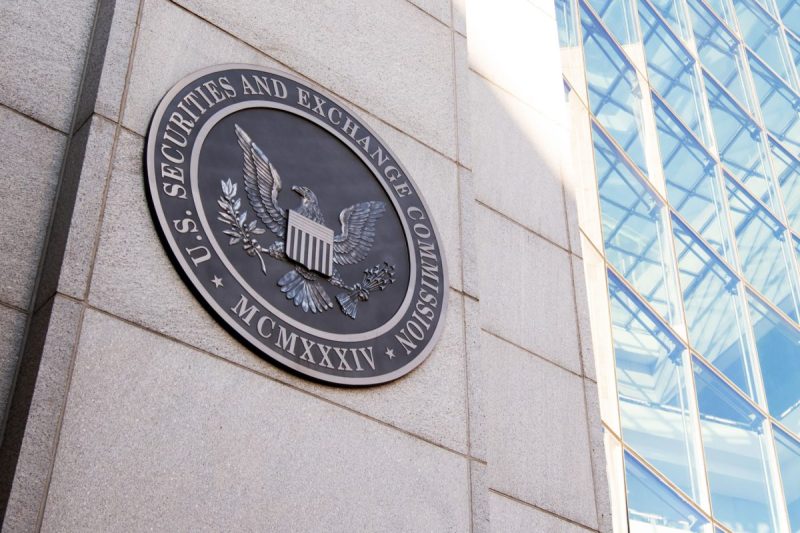
Ex-SEC Official Blasts US SEC Amid Rari Capital Settlement Charges
An ex-SEC official has raised concerns over the regulatory body’s approach to digital assets, coinciding with a recent settlement involving the decentralized finance (DeFi) platform, Rari Capital.
Michael Liftik, an ex SEC official and current partner at law firm Quinn Emanuel, emphasized the agency’s reluctance to issue clear guidelines for digital assets, while pursuing enforcement actions against firms in the sector. His remarks have sparked further debate on the SEC’s regulatory strategy.
Rari Capital Settlement with the SEC
The SEC has announced it had settled charges against Rari Capital and its co-founders. The DeFi platform, which offered yield-bearing services to crypto investors, faced accusations of misleading investors and engaging in unregistered broker activity.
Rari Capital’s Earn pools, marketed as being able to autonomously manage and rebalance investments, were found to require manual intervention, contradicting the firm’s claims.
The settlement also covered activities related to Rari’s Fuse pools, with the agency stating that the co-founders, Jai Bhavnani, Jack Lipstone, and David Lucid, were involved in broker activities without proper registration. At its peak, the platform held over $1 billion in assets. Though Rari Capital and its executives neither admitted nor denied the charges, they agreed to cease breaking securities laws in the future.
Ex SEC Official Blasts Approach to Enforcement
Liftik’s criticism of the U.S. Securities and Exchange Commission’s approach resonates with broader discontent within the crypto industry. He highlighted the agency’s preference for enforcement actions over rulemaking or providing clear guidance.
In addition, the ex-SEC Official noted that the agency’s reliance on a “whack-a-mole” enforcement strategy, where firms are targeted one by one, creates a difficult operating environment for companies trying to comply with evolving rules.
A memorable line from Michael Liftik, partner at law firm @quinnemanuel and a former senior @SECGov employee, from today’s @FinancialCmte hearing:
“The SEC has refused to issue new rules or meaningful guidance relating to digital assets and, at the same time, has engaged in… https://t.co/ZTCxly1ViG
— Eleanor Terrett (@EleanorTerrett) September 18, 2024
This criticism comes as the U.S. Securities and Exchange Commission continues to scrutinize decentralized finance platforms. Over recent years, several firms, both centralized and decentralized, have been charged with securities violations, reinforcing Liftik’s argument. The agency has made it clear that labeling a platform as “decentralized” or “autonomous” does not exempt it from securities laws.
Rari Capital’s History and Hack Incident
Rari Capital’s legal troubles were compounded by a significant exploit in May 2022, when its Fuse borrowing and lending platform was hacked, leading to the theft of $80 million.
As a result, the hack forced the firm to halt new deposits and begin winding down the platform, leading to its eventual shutdown.
In the agency’s settlement, the agency acknowledged the firm’s cooperation in returning performance-based fees to affected users and its remedial efforts in response to the hack. The settlement with Rari Capital Infrastructure LLC, which took over the firm after the hack, further stipulated that the company must refrain from violating securities laws in the future.
Growing Regulatory Divide in U.S. Crypto Legislation
The U.S. Securities and Exchange Commission’s latest actions come amid an ongoing debate in Congress over crypto regulation. Recent hearings have exposed a divide among lawmakers regarding how the digital asset industry should be regulated. A memo circulating in Congress suggests that some Democratic leaders view crypto as a partisan issue, labeling it as an innovation aligned with “extreme MAGA Republicans.”
Concurrent with the ex-SEC official statements, this political divide has heightened tensions as regulators and lawmakers attempt to craft comprehensive crypto legislation. Proposals such as the FIT 21 bill, which aims to classify digital assets and modernize securities laws, remain a focal point of debate.
Critics argue that the current regulatory environment under the Biden administration is stifling innovation, while proponents of tighter regulations advocate for stronger investor protections.
The post Ex-SEC Official Blasts US SEC Amid Rari Capital Settlement Charges appeared first on CoinGape.
